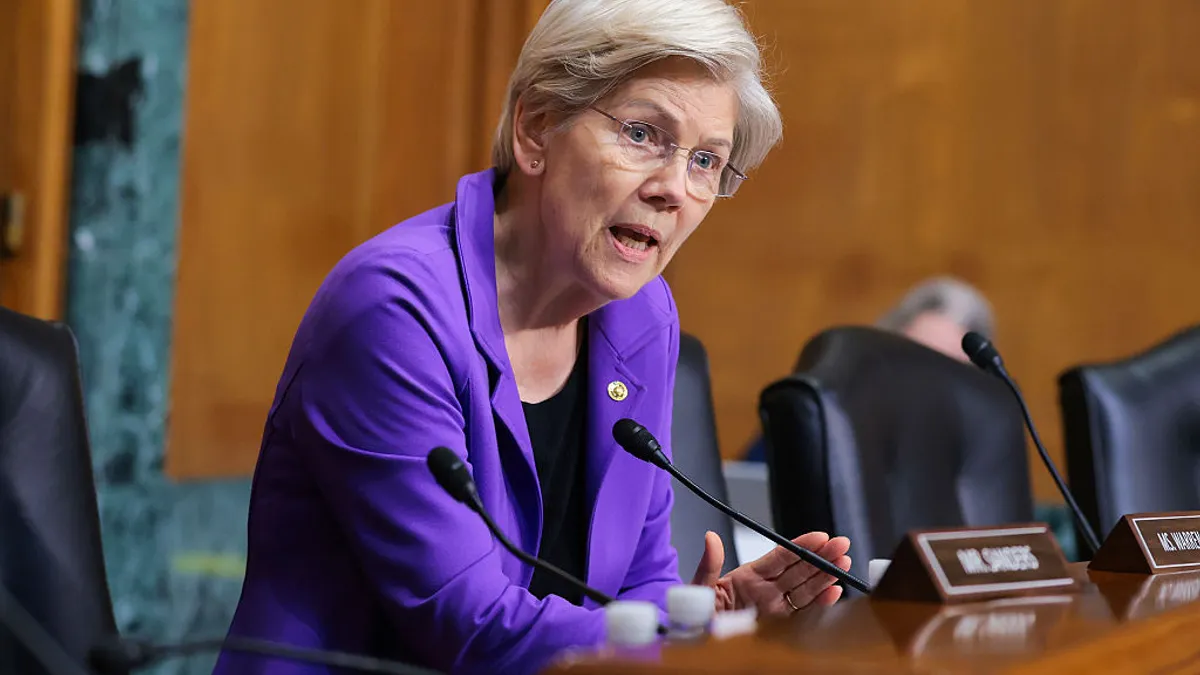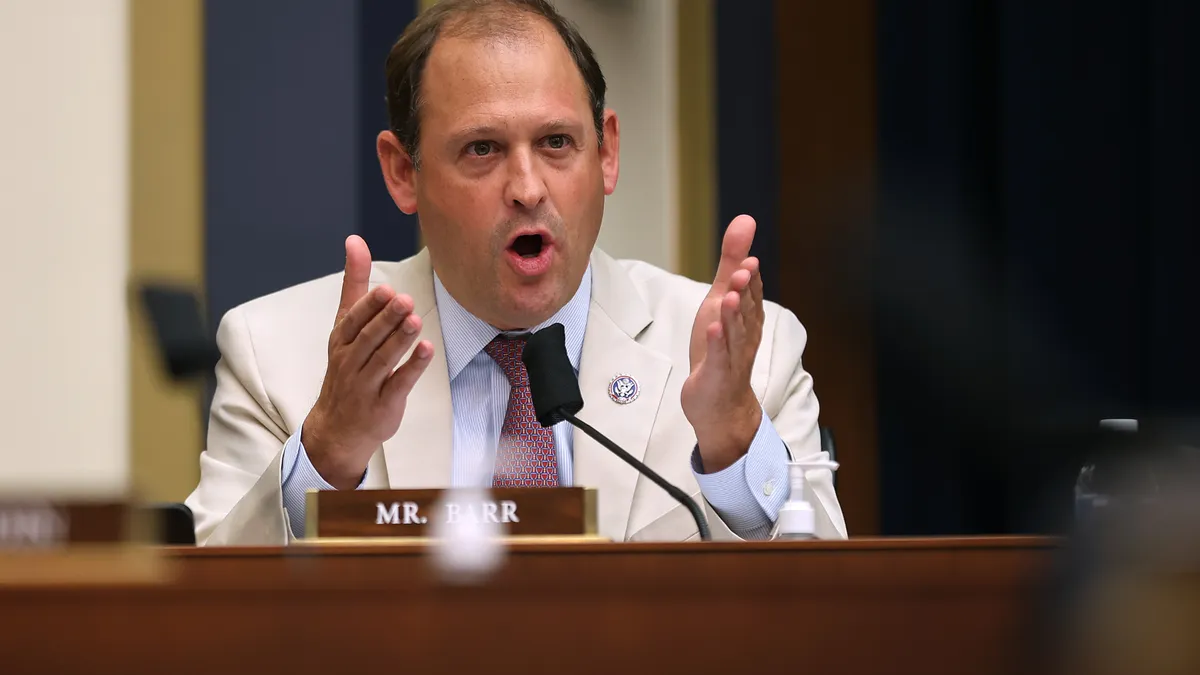New York City Comptroller Brad Lander accused BlackRock of “backtracking on its climate commitments” in a letter to the asset manager Wednesday — “to the detriment of its portfolio, New York City’s pension funds, and our planet.”
Lander is asking BlackRock to publish an implementation plan that clarifies its commitment to achieving net zero across its entire portfolio, with concrete steps, a timeline and the methods it will use to regularly report on Scope 1, 2 and 3 emissions for all of its assets.
He also wants the asset manager to “provide a detailed approach to keeping fossil fuel reserves in the ground and phasing out high-emitting assets,” he wrote Wednesday, and to “support climate action through transparent corporate engagement that requires disclosure of climate-related lobbying, works to end lending and insurance for new fossil fuel supply projects, and pushes for science-based targets at portfolio companies.”
BlackRock manages roughly $43 billion in investments for three New York City pension funds, which, Lander noted, have pledged to achieve net zero portfolios by 2040.
“We cannot achieve that goal without the active alignment of our asset managers, beginning with … our largest,” Lander wrote.
Lander’s letter comes roughly two weeks after a BlackRock executive wrote to 19 Republican attorneys general, clarifying that the asset manager does not “dictate to companies what specific emission targets they should meet or what type of political lobbying they should pursue” — it merely asks companies to disclose climate change-related information so investors can judge risk.
The attorneys general last month accused BlackRock of prioritizing “activism” over fiduciary duty, and Texas’ comptroller placed the asset manager on a “divestment list” for companies deemed to be boycotting the fossil-fuel sector. The move requires state pension funds to divest from BlackRock and other listed companies but gives those firms 90 days to convince the state to reconsider.
BlackRock, for its part, pointed to its $170 billion in investments in U.S. energy companies, saying they are “completely at odds with any notion of a boycott.”
Lander, meanwhile, cited BlackRock’s relatively muted voting record during the 2022 proxy season. The asset manager voted in favor of 24% of shareholder proposals on environmental and social issues this year, saying the measures had become too prescriptive. That’s down from 43% in 2021, according to the Financial Times.
In her letter this month to the 19 attorneys general, Dalia Blass, BlackRock’s head of external affairs, characterized the asset manager as a “minority investor,” adding that dictating emission targets was not the role of BlackRock but of a company’s management and board.
Lander wrote Wednesday that asset managers wield influence despite not holding a majority position.
“Most shareholder resolutions are nonbinding,” Lander wrote. “Contrary to BlackRock’s claims, the proposals that BlackRock voted against do not dictate a company’s specific action, but rather provide an opportunity for shareholders to put forward an expectation of transparency for management’s consideration.”
Lander then turned the lens on BlackRock’s own portfolio, emphasizing the ambiguity in the asset manager’s policy. He noted that BlackRock hints at a goal to achieve net zero emissions portfolio-wide by 2050 “but maintains that it does not include any obligation to set or attain net zero targets.”
BlackRock’s net-zero statement indicates it “anticipates” 75% of its assets will be connected to science-based targets by 2030, Lander wrote, but noted that 10% of BlackRock’s assets push 85% of its portfolio emissions.
“If these highest-emitting 10% are not in the 75% with science-based targets by 2030, as your commitment would currently allow, that commitment is not worth the paper it’s written on,” Lander wrote.
He added that although BlackRock co-led a Glasgow Financial Alliance for Net Zero (GFANZ) working group to manage the phase-out of high-emitting assets, BlackRock has not provided a plan to do so for its own portfolio.
BlackRock declined to comment Thursday to The Wall Street Journal.
Lander is no stranger to taking a political stance against finance companies. He co-authored, with New York City Mayor Eric Adams, a letter to Wells Fargo CEO Charlie Scharf in April, vowing that the city would not open any new depository accounts with the bank after a Bloomberg analysis found Wells Fargo approved a far lesser proportion of mortgage refinance applications from Black homeowners in 2020 than White ones.
Lander also accused the 19 Republican attorneys general Wednesday of “waging a war of political distraction in the hopes of protecting the fossil fuel interests that have captured their states.”
“Political theater cannot and must not guide fiduciary actions,” Lander wrote. “This is not a matter of politics or whatever ideologues have termed ‘wokeness’ — it is a matter of science and economics.”
Lander urged BlackRock to use its position to “lead in deeds, not simply words.”
“The fundamental contradiction between BlackRock’s statements and actions is alarming,” he wrote.



















